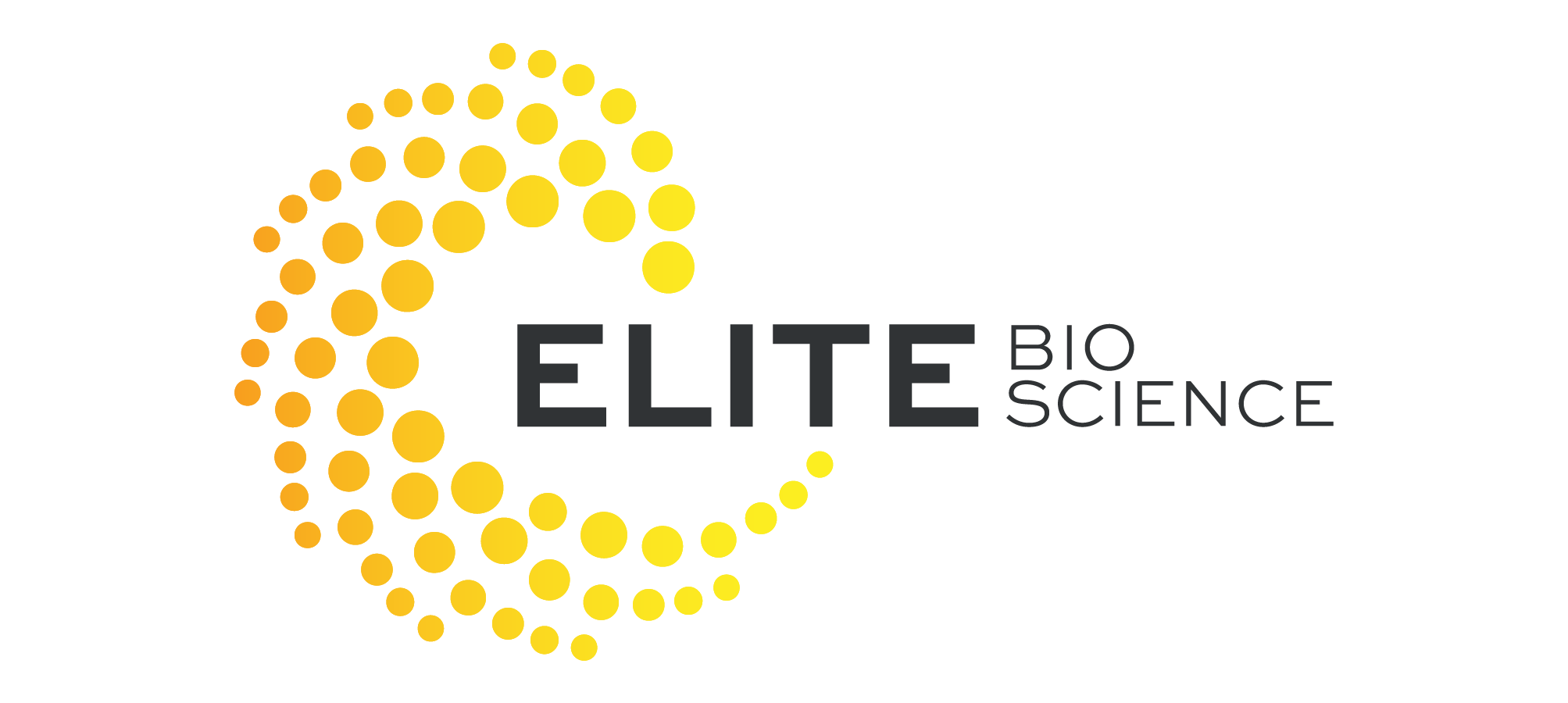Collagen Supplements for Women A Complete Guide
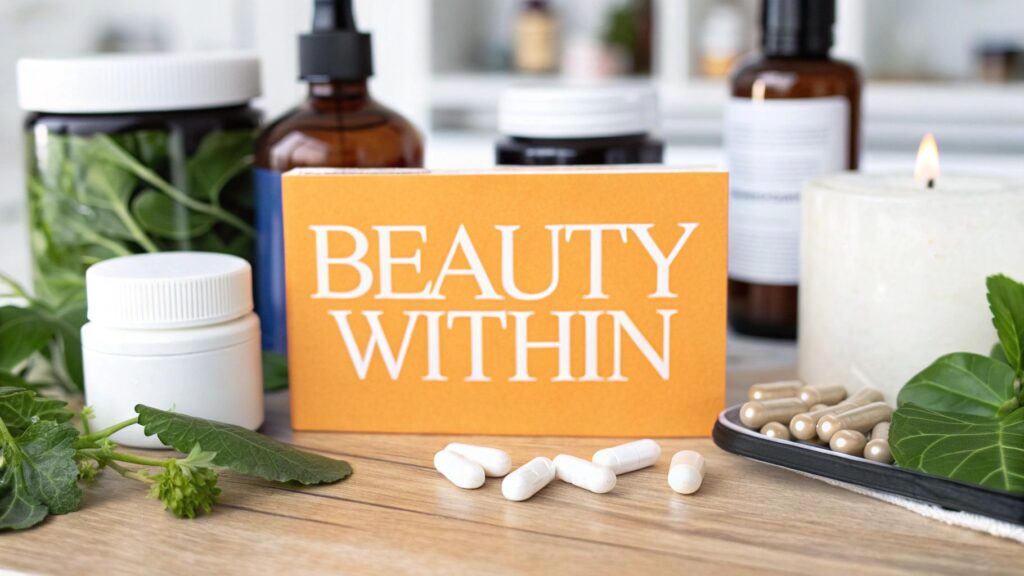
Collagen supplements are about way more than just skin deep—they're a powerful way to support your body's foundation from the inside out. They work by topping up your natural supply of this crucial protein, which unfortunately starts to dip as we get older. This proactive approach has made collagen a true staple in the "beauty-from-within" movement.
Why Collagen Is a Wellness Staple for Women
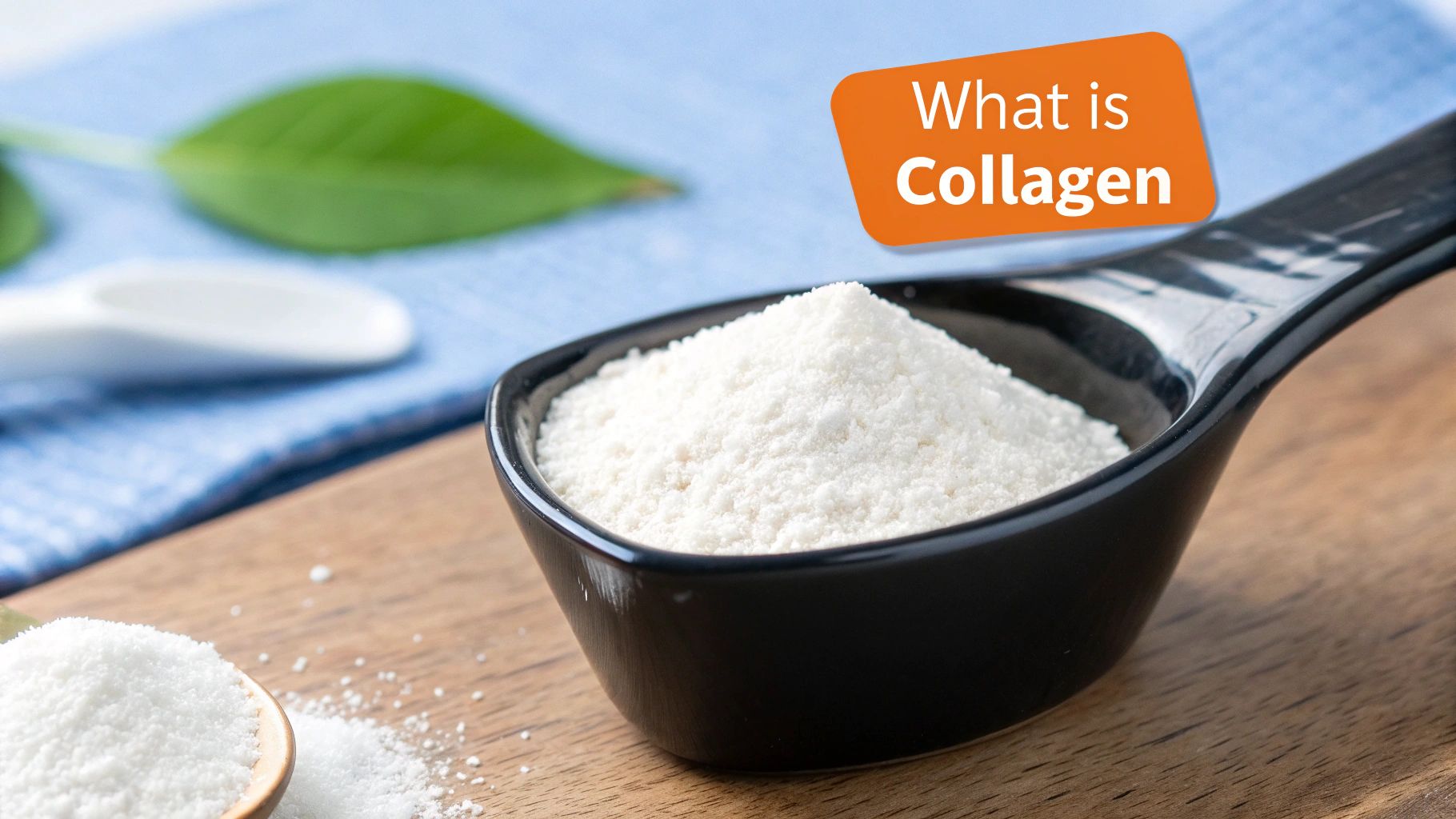
Think of collagen as the scaffolding that holds your entire body together. It's the most plentiful protein we have, giving essential structure and strength to our skin, bones, hair, and all the connective tissues in between. It’s literally the "glue" that keeps your skin firm and your joints moving smoothly.
But here’s the catch: our body’s natural collagen factory doesn’t keep up the pace forever. Once we hit our 30s, production starts to slow down by about 1% every single year. For women, this slowdown can feel even more pronounced due to the hormonal shifts that come with life stages like perimenopause and menopause, which can really take a toll on our collagen levels.
The Factors Accelerating Collagen Decline
On top of the natural aging process, a few lifestyle and environmental factors can hit the fast-forward button on collagen breakdown. Knowing what they are can help you protect the collagen you’ve got while you work on rebuilding it.
The main culprits include:
- Sun Exposure: UV radiation is public enemy number one. It directly attacks and breaks down the collagen fibers in your skin, leading to premature signs of aging.
- Dietary Choices: A diet heavy in sugar and refined carbs can mess with collagen's ability to repair itself through a process called glycation.
- Smoking: The chemicals in cigarette smoke are brutal on collagen and elastin, paving the way for wrinkles and sagging skin.
- Inadequate Sleep: Your body is in full repair-and-regenerate mode while you sleep. Skimping on rest disrupts this vital process.
This slow-and-steady decline is why many of us start to notice things like finer lines, skin that’s a little less bouncy, and joints that feel a bit creakier over time. It’s a completely normal part of life, but it doesn’t mean we have to sit back and do nothing.
The Rise of the Beauty-From-Within Movement
This is where the whole concept of "beauty-from-within" really shines. Instead of just slathering creams on the surface, this approach is all about nourishing your body internally to support its core structures from the ground up. And collagen supplements have quickly become the star player.
By giving your body the exact amino acid building blocks it needs to produce its own collagen, supplements offer a direct and effective path to supporting skin health, joint function, and overall vitality.
This shift in thinking is clearly showing up in the market. In the United States, over 70% of collagen buyers are women between 30 and 55—a group that’s highly motivated to address aging and joint comfort. This huge demand is fueling major growth, with the U.S. collagen market expected to expand at a 9.19% CAGR from 2025 to 2032.
You can explore more about these market trends and what they mean for the future of wellness in this United States collagen market analysis. It's a powerful trend that shows why collagen for women has gone from being a niche product to a mainstream wellness essential.
Exploring the Benefits of Collagen for Women's Health

Moving beyond the surface-level hype, the real-world benefits of consistent collagen supplementation are backed by a growing mountain of evidence. For women, these advantages hit on key areas of health that shift and change through every stage of life. From glowing skin to resilient joints, collagen offers foundational support that truly works from the inside out.
The science is compelling, sure, but it’s the noticeable results that make collagen supplements for women such a core part of a daily wellness routine. Let's dig into the specific, practical ways this powerful protein can make a difference you can actually see and feel.
Rejuvenating Skin, Hair, and Nails
The most celebrated benefit of collagen is its profound impact on skin health. Think of your skin's dermal layer like a mattress; when you're young, it’s plump and firm because it's packed with strong collagen fibers. As production declines with age, that mattress starts to lose its stuffing, leading to fine lines, wrinkles, and a loss of that youthful bounce.
Collagen supplements work by giving your body the essential amino acids it needs to "re-stuff" that mattress. By nudging your body's own collagen-making machinery back into gear, these supplements help restore hydration and firmness from within. Studies have shown that taking specific collagen peptides regularly can lead to a measurable drop in wrinkle depth and a significant boost in skin hydration.
But the perks don't stop with your skin. Since collagen is a key building block for hair follicles and nail beds, adding a supplement can also lead to stronger, less brittle nails and hair that feels thicker and healthier.
Studies show that consuming just 2.5 grams per day of certain collagen peptides can reduce wrinkles by as much as 20%, improve skin elasticity, and increase the body's own procollagen production.
If you're looking for other ways to support your skin’s foundational structure, you can learn more in our guide on how to improve skin elasticity.
Supporting Joint Comfort and Bone Density
While radiant skin is a fantastic perk, the structural benefits of collagen for joints and bones are just as critical, especially for active women and those navigating post-menopause. Collagen acts as the cushion in our joints, making up the rubbery cartilage that lets us move smoothly and without pain.
When natural collagen levels drop, this cartilage can wear thin, leading to stiffness, discomfort, and that feeling of not being able to move like you used to. Supplementing with collagen, particularly Type II collagen, helps maintain the integrity of this cartilage. It’s like adding fresh padding to protect your joints from the daily grind.
This support is invaluable for keeping up an active lifestyle, whether that means hitting the gym, running after your kids, or just enjoying a long walk without those nagging aches.
Beyond that, collagen plays a vital role in bone health. Roughly one-third of our bone mass is collagen, which provides the flexible framework that minerals like calcium need to latch onto. As women age, keeping up bone mineral density becomes a top priority to lower the risk of fractures.
Research suggests that collagen peptides can stimulate the cells that build bone while slowing down the cells that break it down. This one-two punch helps support a stronger, more resilient skeleton—a true cornerstone of healthy aging.
Enhancing Gut Health and Wellness
A newer, but incredibly exciting, area of collagen research is its potential role in gut health. The lining of your intestinal tract is a massive and complex barrier, and the amino acids found in collagen—especially glycine and proline—are essential for building and maintaining its strength.
A strong gut lining is crucial for keeping unwanted particles from leaking into the bloodstream, a condition often called "leaky gut," which can trigger inflammation all over the body.
By providing the building blocks needed to reinforce the tight junctions in your intestinal wall, collagen may help soothe and repair the gut lining. While the research is still evolving, the initial findings are promising. They highlight yet another way collagen supplements for women can contribute to overall, systemic wellness, connecting the dots between a healthy gut and vibrant skin, strong immunity, and a balanced mood.
Decoding the Different Types of Collagen
Walking down the supplement aisle can feel overwhelming. Labels shout about different "types" and "sources," and it’s easy to get lost in the jargon. But figuring this out is the key to picking a product that actually works for your specific goals.
Not all collagen is created equal. Think of the different types as specialized tools, each designed for a different job within your body. The world of collagen supplements for women gets a lot simpler once you understand the three main players: Types I, II, and III. These three make up the vast majority of the collagen in your system.
The Big Three Collagen Types Explained
Your body has at least 28 different types of collagen, but over 90% of it is made up of just those three. Knowing what each one does helps you zero in on what you need, whether you’re aiming for glowing skin, comfortable joints, or just better overall wellness.
This infographic breaks down what these key collagen types do.
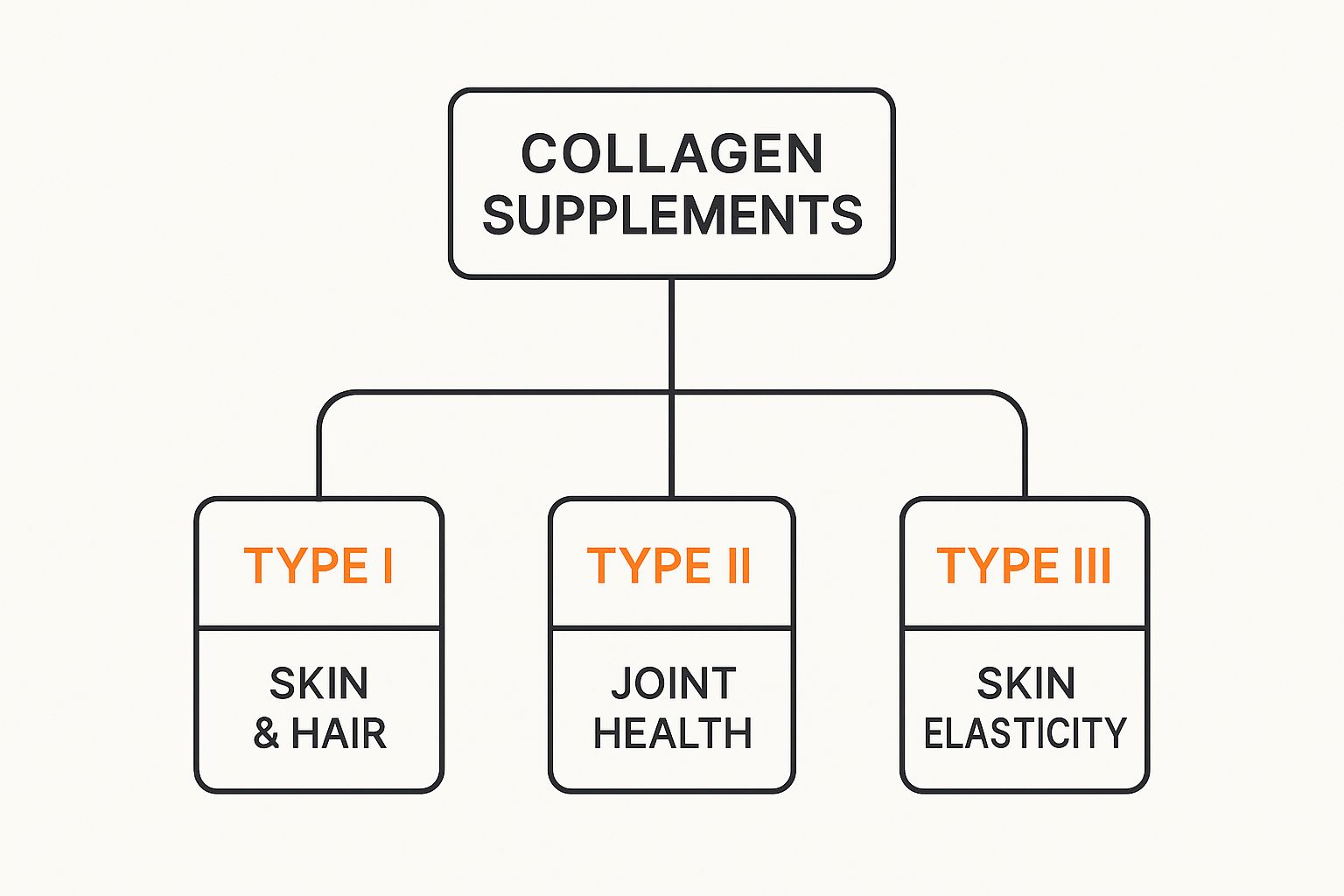
As you can see, each collagen type is clearly linked to a specific wellness goal, which makes matching a supplement to your needs much more straightforward.
Here’s a closer look at what each type specializes in:
- Type I Collagen: This is the undisputed champion of the collagen world. It’s the main structural protein in your skin, hair, nails, bones, and ligaments. If your top priority is tackling fine lines, boosting skin firmness, or strengthening brittle nails, a supplement rich in Type I is your best bet.
- Type II Collagen: Think of this one as the joint specialist. It’s the primary component of cartilage—that flexible, cushiony tissue that keeps your joints moving smoothly and without pain. For women focused on an active lifestyle or easing joint stiffness, Type II is essential.
- Type III Collagen: You'll often find this one working alongside Type I. It's crucial for the structure of your muscles, organs, and arteries. It also plays a huge role in giving skin its youthful elasticity and plumpness, acting as a vital supporting player for a healthy complexion.
Many of the best collagen supplements for women will feature a blend of Types I and III to offer comprehensive support for skin and overall structural integrity.
Understanding Collagen Sources
Now that you know the types, where do they come from? Collagen supplements are always derived from animal sources. The source doesn't just determine the primary types of collagen in the product, but also its bioavailability and any potential dietary restrictions.
The most common sources you'll find are:
- Bovine (Cow): Sourced from cattle hides, bovine collagen is a powerhouse of Types I and III. This makes it a fantastic all-around choice for skin, hair, nails, and general wellness. It’s also widely available and usually more affordable.
- Marine (Fish): Derived from fish skin and scales, marine collagen is almost exclusively Type I. Its biggest advantage is its smaller particle size, which allows your body to absorb it more easily. This makes it a premium choice for anyone prioritizing skin rejuvenation.
- Chicken: Sourced mainly from chicken cartilage, this is the go-to for Type II collagen. If your main concern is supporting joint health and reducing discomfort, a chicken-based collagen supplement is the most targeted option.
Key Takeaway: The single most important term to look for on any label is "hydrolyzed collagen" or "collagen peptides." This means the large collagen molecules have been broken down into smaller, easily digestible chains of amino acids that your body can absorb and put to use right away.
This "pre-digested" form ensures you get the maximum benefit from every scoop, no matter which source you choose.
Comparing Collagen Supplement Sources
To make your decision even clearer, this table breaks down the top collagen sources head-to-head. It compares the most common sources of collagen supplements to help you choose the best type for your specific health goals and dietary needs.
| Collagen Source | Primary Collagen Types | Best For | Key Advantages | Considerations |
|---|---|---|---|---|
| Bovine | Type I & III | Skin elasticity, hair, nails, and general wellness | Widely available, cost-effective, rich in glycine | Not suitable for those with beef allergies. |
| Marine | Type I | Anti-aging, skin hydration, and wrinkle reduction | Excellent bioavailability and superior absorption | Can be more expensive; allergen for fish allergies. |
| Chicken | Type II | Joint health, cartilage support, and mobility | Highly targeted for joint and connective tissues | Less focused on skin and beauty benefits. |
Ultimately, whether you choose bovine for all-around support, marine for superior skin benefits, or chicken for targeted joint health, understanding the source helps you align your supplement with your personal wellness goals.
How to Choose a High-Quality Collagen Supplement
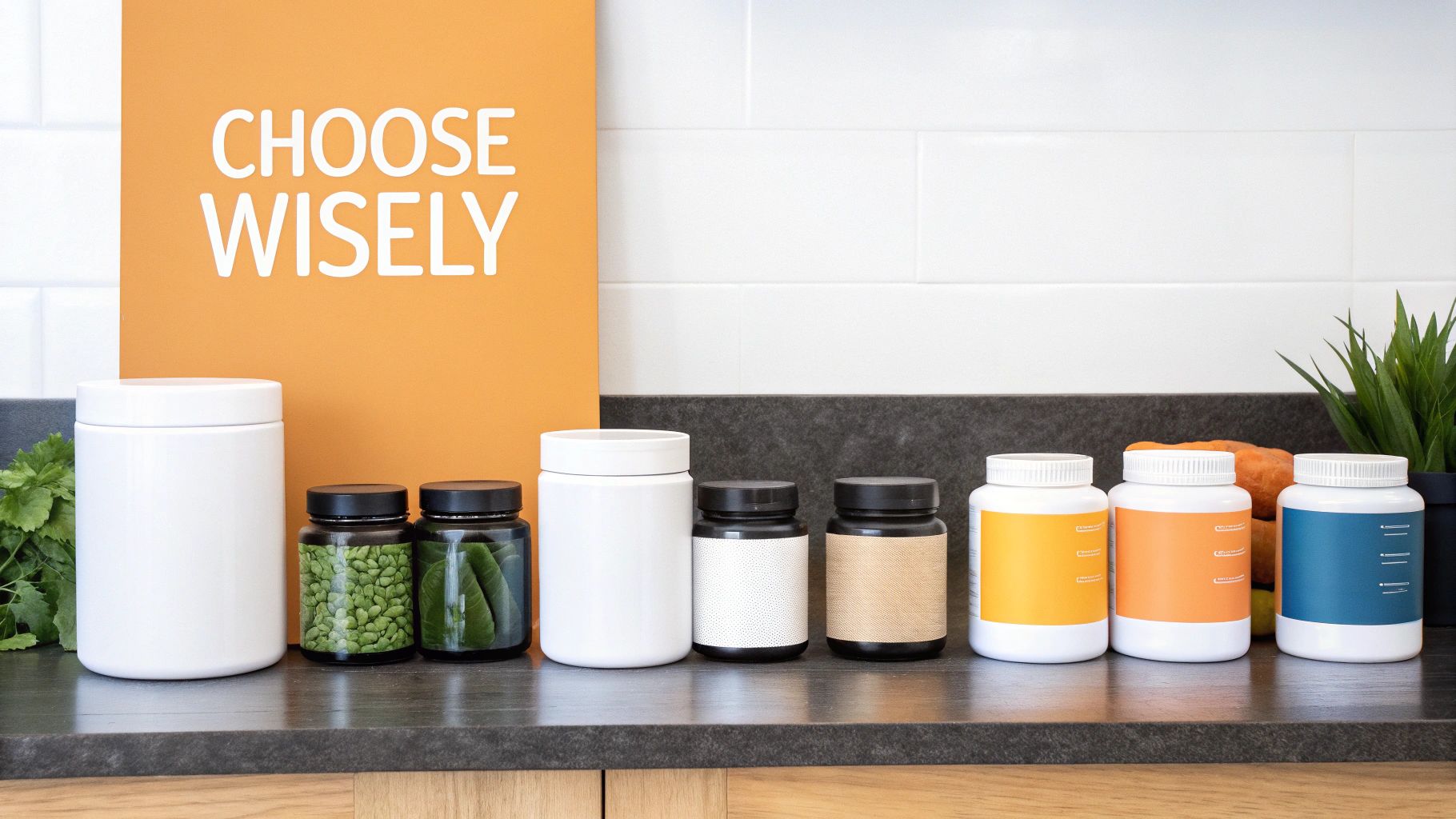
With a booming market and shelves packed with options, picking the right collagen supplements for women can feel overwhelming. The good news is, you don't need a degree in biochemistry to make a smart choice. A few key quality markers will help you cut through the noise and find a product that's both safe and effective. It all starts with learning to read the label like a pro.
Your first checkpoint is the form of collagen used. Scan the ingredient list for the terms "hydrolyzed collagen" or "collagen peptides." These aren't just fancy marketing words; they mean the large collagen molecules have been broken down into smaller, more bioavailable pieces. Think of it like pre-chopping vegetables before adding them to a soup—this pre-digestion step makes it much easier for your body to absorb and actually use the nutrients.
This step is non-negotiable if you want to see results. An unhydrolyzed collagen supplement just won't be absorbed efficiently, meaning most of its potential benefits will go to waste.
Scrutinize the Sourcing and Purity
Once you've confirmed you're looking at collagen peptides, the next question is: where did it come from? High-quality brands are transparent about their sourcing because it directly impacts the product's purity and effectiveness. Knowing the origin also helps you align the supplement with your dietary preferences.
Here’s what to look for based on the most common sources:
- For Bovine Collagen: The gold standard is "grass-fed and pasture-raised." This tells you the cattle were raised in a healthier, more natural environment, which almost always translates to a cleaner final product.
- For Marine Collagen: You want to see the words "wild-caught." This practice helps you avoid the potential contaminants sometimes found in farmed fish, giving you a purer source of Type I collagen.
- For Chicken Collagen: Look for sources that are "pasture-raised," which indicates a higher standard of animal welfare and, again, a cleaner product.
Clean sourcing is a direct reflection of a brand's commitment to quality. It’s your assurance that you're nourishing your body with a pure supplement, not something with unwanted additives or contaminants. If you want to dive deeper into how these building blocks support your skin, check out our detailed guide on https://elitebioscience.co/peptides-for-skin/.
The Importance of Third-Party Testing
How can you be sure that what's on the label is actually what's in the tub? This is where third-party certifications come in. These independent seals of approval are your guarantee that a product is pure, potent, and free from harmful junk like heavy metals or pesticides.
Look for logos from reputable organizations such as:
- NSF International
- Informed-Choice
- USP (United States Pharmacopeia)
A third-party certification is a non-biased verification of a supplement's quality. It provides peace of mind that the product meets stringent standards for safety and purity, making it a critical factor when choosing collagen supplements for women.
A brand that invests in this rigorous testing process is showing a serious commitment to your safety and the integrity of their product. It's a clear sign you can trust what you're buying.
Avoid Unnecessary Fillers and Additives
Finally, always take a close look at the "other ingredients" list. A top-tier collagen supplement should have a very short and clean ingredient panel. Be wary of products loaded with unnecessary fillers, artificial sweeteners, gums, or common allergens. These additives offer zero health benefits and can sometimes cause digestive upset or other unwanted reactions.
The market for these supplements is exploding, reflecting a massive consumer interest in wellness. Globally, the collagen supplements market is projected to hit $4.31 billion by 2030, up from $2.97 billion in 2025. While new product forms are driving this expansion, bovine collagen still leads the pack due to its proven effectiveness and availability. A clean ingredient list ensures you're investing in pure collagen, not a mix of cheap fillers.
Making Collagen a Seamless Part of Your Daily Routine
Let’s be honest, the best supplement in the world is useless if it just sits in your cabinet. The real secret to seeing those glowing skin and stronger joint benefits isn't about finding some magical formula—it's about consistency.
Think of it like watering a plant. A splash here and there won't do much, but a steady, daily routine provides the nourishment it needs to truly thrive. Turning your collagen into a simple, automatic habit is the most important thing you can do.
Forget overthinking it. So many people get stuck on when to take their collagen. Morning, noon, or night? The simple answer is: whenever you'll actually remember to do it. Your body is smart enough to absorb and use the collagen peptides effectively no matter what the clock says. Consistency beats timing, every single time.
Finding Your Perfect Daily Dose
Okay, so how much do you actually need? While everyone is a little different, the research points to a pretty clear effective range for most people.
A daily dose between 10 to 20 grams of hydrolyzed collagen peptides is typically what you’ll see in studies supporting skin, hair, and joint health. But think of this as a starting point, not a strict rule.
It's always a good idea to start with the dosage recommended on your product's label. From there, you can chat with a healthcare provider to fine-tune the amount based on your specific goals and health needs. They can give you personalized advice to make sure you're on the right track.
Effortless Ways to Mix It In
The best supplements are the ones you don't even notice you're taking. High-quality unflavored collagen powders are designed to be virtually tasteless and odorless, which makes them incredibly easy to sneak into foods and drinks you already love.
Here are a few dead-simple ideas to get you started:
- Morning Coffee or Tea: This is the most popular for a reason. Just stir a scoop into your morning brew—it dissolves completely without changing the taste or texture.
- Smoothies and Shakes: Blend it right into a fruit smoothie or your post-workout protein shake for an invisible protein boost.
- Oatmeal or Yogurt: Mix it into your breakfast bowl of oatmeal, yogurt, or chia pudding. You get all the benefits without any fuss.
- Soups and Sauces: Yep, you can even add a scoop to warm soups, stews, or pasta sauces to enrich your meal. No one will ever know.
This approach flips the script, turning your supplement from a chore into a simple, automatic upgrade to your day. While supplements are a fantastic direct route, don't forget you can also support your body’s own production. You can learn more about the natural ways to boost collagen through the foods you eat.
Make It a Ritual with Collagen Combos
Turning your daily dose into a pleasant little ritual can make all the difference. Instead of just chugging it down, try creating a "collagen combo" that you genuinely look forward to. This helps build a positive habit that feels totally effortless.
Here’s a simple recipe to transform your supplement into a treat:
Morning Glow Smoothie Recipe
- Combine 1 scoop of unflavored collagen powder with 1 cup of unsweetened almond milk.
- Add 1/2 cup of mixed berries (packed with antioxidants and skin-loving Vitamin C).
- Toss in 1/2 a banana for that creamy texture and a dose of potassium.
- Finish with 1 tablespoon of chia seeds or flaxseeds for healthy fats.
- Blend until it’s silky smooth and enjoy right away!
By finding a method that fits neatly into your lifestyle, taking your collagen becomes second nature. And that’s when you’ll start seeing those long-term results you can both see and feel.
Common Questions About Collagen Supplements
So, you’re getting serious about adding a collagen supplement to your routine. That’s great! But it’s totally normal to have a few last-minute questions before you commit. Investing in your health is a big deal, and you deserve to feel 100% confident in your choice.
Think of this section as your final Q&A before diving in. We’ll cut through the noise and give you straight answers on everything from how long it really takes to see results to whether it's safe for everyone. The goal is to clear up any lingering doubts so you can start your journey with excitement.
How Long Does It Take to See Results?
This is the big one, right? The honest answer comes down to one word: patience. Collagen isn't an overnight miracle; it’s a foundational nutrient that works from the inside out, supporting your body's natural repair cycles. How quickly you notice a difference depends on your age, diet, lifestyle, and what you’re hoping to improve.
Generally, here’s a realistic timeline for what you can expect:
- For Skin Hydration and Elasticity: Many women report feeling that their skin is softer, more hydrated, and a bit plumper within the first 4 to 8 weeks of daily use.
- For Fine Lines and Wrinkles: Seeing a visible reduction in fine lines takes a bit more time. Most studies show measurable improvements after about 8 to 12 weeks of consistent use.
- For Hair and Nails: Since hair and nails grow pretty slowly, you’ll likely notice they feel stronger and less brittle after about 3 to 6 months.
- For Joint Comfort: If you're taking collagen for joint support, you might feel a difference in comfort and mobility within 3 to 6 months as it helps support cartilage integrity.
Key Insight: Consistency is everything. Taking a steady, effective dose every single day is far more important than taking a huge dose sporadically. This allows the amino acids to build up in your tissues, giving your body a constant supply of the building blocks it needs.
Are There Any Side Effects to Be Aware Of?
For the vast majority of women, collagen supplements are considered very safe and are well-tolerated. After all, collagen is just a protein that comes from natural food sources, so serious side effects are rare.
That said, a small number of people might run into minor issues, most commonly:
- Mild Digestive Discomfort: Some people feel a little bloated or overly full when they first start taking collagen. This usually goes away on its own as your body adjusts.
- A Lingering Aftertaste: While a good, unflavored collagen powder is virtually tasteless, some lower-quality products can have a noticeable aftertaste.
- Allergic Reactions: This is tied directly to the collagen's source. If you have a known allergy to fish, shellfish, or eggs, you absolutely must avoid marine or egg-derived collagen.
Always stick with a reputable brand that’s transparent about its sourcing and avoids unnecessary fillers, as these are often the real culprits behind digestive upset.
Can I Take Collagen While Pregnant or Breastfeeding?
When you’re pregnant or breastfeeding, your body is in a class of its own, and it’s always best to be extra cautious. While collagen is a natural protein you get from food, the concentrated doses in supplements haven’t been widely studied in pregnant or nursing women.
Because of that lack of specific research, the standard medical advice is to play it safe.
It is essential to talk to your doctor or a qualified healthcare provider before you start taking any new supplement—including collagen—during pregnancy or while breastfeeding. They can give you personalized advice based on your individual health needs.
This ensures every choice you make is the safest one for you and your baby, giving you total peace of mind.
Does Collagen Cause Weight Gain?
Let's clear this one up right away: that’s a myth. Collagen is a protein, and like all proteins, it has calories (around 30-40 calories for a 10-gram serving). However, there is zero scientific evidence suggesting that collagen supplements cause weight gain.
In fact, for some people, the opposite might be true. Protein is well-known for helping you feel full and satisfied. Adding a scoop of collagen to your morning smoothie or coffee could actually help you feel fuller for longer, which might support your weight management goals by curbing unnecessary snacking.
The women’s health and beauty supplements market is a massive industry, valued at $55.4 billion in 2024, with collagen as one of its biggest drivers. The main consumers are women aged 31–50, but postmenopausal women also make up a significant 26.6% of the market, which shows just how much collagen is valued at different life stages for everything from skin health to joint support. You can discover more insights about the women's health supplements market to see the data for yourself. This widespread trust shows that collagen is seen as a tool for wellness, not something that leads to unwanted weight gain.
At Elite Bioscience, we are dedicated to providing high-quality, third-party tested therapies that support your wellness goals. Our peptide and vitamin protocols are designed to help women promote skin elasticity, stamina, and overall vitality from the inside out.
Explore our wellness solutions and start your journey with Elite Bioscience today.
QUICK SEARCH
Make an account today to start your journey towards a better and healthier lifestyle.
